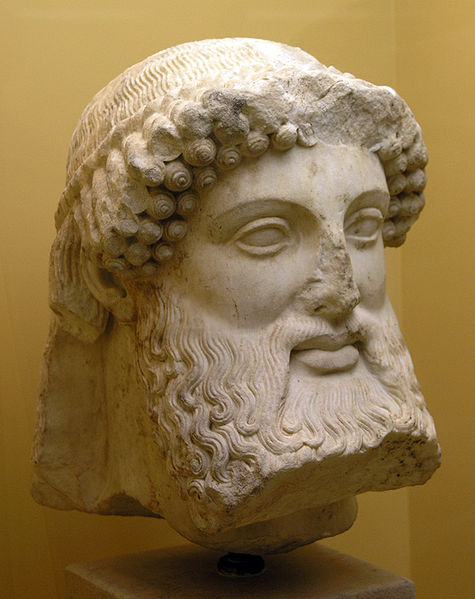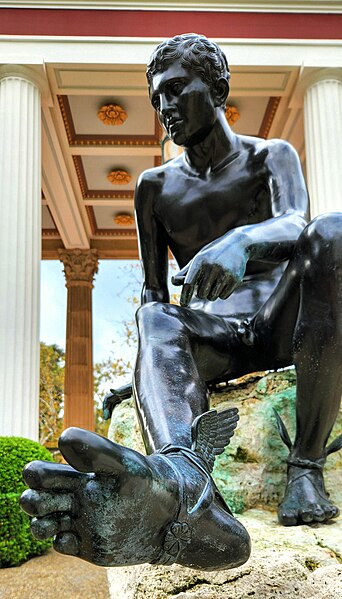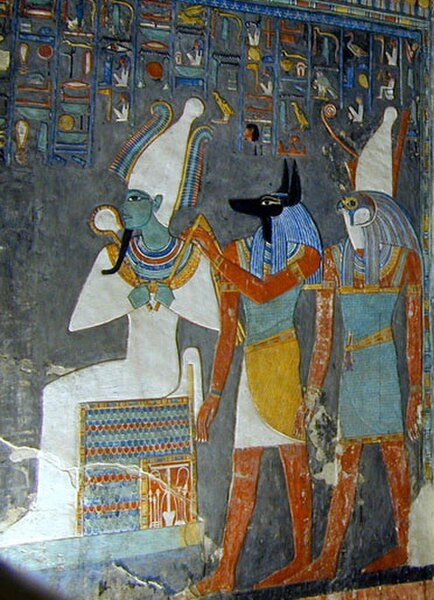Hermes is an Olympian deity in ancient Greek religion and mythology considered the herald of the gods. He is also considered the protector of human heralds, travelers, thieves, merchants, and orators. He is able to move quickly and freely between the worlds of the mortal and the divine aided by his winged sandals. Hermes plays the role of the psychopomp or "soul guide"—a conductor of souls into the afterlife.
Hermes Ingenui (Vatican Museums), Roman copy of the second century BC after a Greek original of the 5th century BC. Hermes has a kerykeion (caduceus), kithara, petasos (round hat) and a traveler's cloak.
Archaic bearded Hermes from a herm, early 5th century BC.
Hermes' winged sandals are evident in this Getty Villa copy of a Roman bronze recovered from the Villa of the Papyri, Naples
Statue of Hermes wearing the petasos and a voyager's cloak, and carrying the caduceus and a purse. Roman copy after a Greek original (Vatican Museums).
A deity or god is a supernatural being considered to be sacred and worthy of worship due to having authority over the universe, nature or human life. The Oxford Dictionary of English defines deity as a god or goddess, or anything revered as divine. C. Scott Littleton defines a deity as "a being with powers greater than those of ordinary humans, but who interacts with humans, positively or negatively, in ways that carry humans to new levels of consciousness, beyond the grounded preoccupations of ordinary life".
Pantheists believe that the universe itself and everything in it forms a single, all-encompassing deity.
Statuette of a nude, corpulent, seated woman flanked by two felines from Çatalhöyük, dating to c. 6000 BCE, thought by most archaeologists to represent a goddess of some kind
Yoruba deity from Nigeria
Egyptian tomb painting showing the gods Osiris, Anubis, and Horus, who are among the major deities in ancient Egyptian religion








